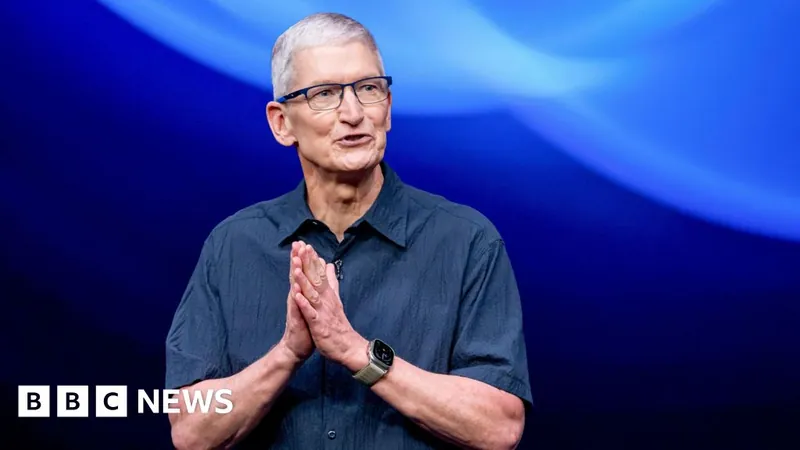
Apple's Board Stands Firm on Diversity Initiatives Amid Conservative Backlash
2025-01-13
Author: Wei
Introduction
In a bold stance against rising conservative pressures, Apple’s board has urged investors to reject a proposal aimed at dismantling its Diversity, Equity, and Inclusion (DEI) programs. This call to action comes after the National Center for Public Policy Research (NCPPR) publicly advocated for the abolition of DEI policies, arguing that such initiatives result in potential litigation and financial risks for corporations.
Apple's Response to NCPPR
Apple's directors assert that the NCPPR's proposal lacks necessity, citing the company's robust compliance framework already in place to navigate legal and operational challenges. In their communication to investors, Apple emphasized that the push to rollback DEI initiatives is an inappropriate attempt to micromanage the organization’s internal policies, pushing for an impractical approach to legal compliance.
Wider Corporate Trends
The controversy surrounding Apple’s DEI programs aligns with a broader trend observed across major U.S. corporations. Firms like Meta, Amazon, Walmart, and McDonald's have recently reversed or scaled back their DEI efforts, influenced significantly by the political vacuum expected to shift with Donald Trump’s anticipated return to the White House as President. Trump has been a vocal critic of DEI initiatives, and his administration's views have swayed many corporate policies.
Upcoming Vote and Legal Background
The proposal by NCPPR is set for a decisive vote at Apple’s annual general meeting on February 25. This decision comes in the wake of a Supreme Court ruling in 2023 that struck down affirmative action policies in university admissions, causing conservative groups to threaten legal action against companies maintaining DEI protocols.
Meta's Shift and Broader Implications
Last week, Meta joined the ranks of corporations reevaluating their DEI commitments in light of what they term a 'shifting legal and policy landscape.' CEO Mark Zuckerberg’s recent moves to align more closely with conservative politics—such as donating $1 million to Trump’s inauguration fund and hiring Republican operatives—reflect a broader trend among tech executives who are facing pressures to conform to a changing political climate.
Conclusion
As this debate unfolds, observers note the potential long-term implications for corporate America’s approach to diversity and inclusion, questioning whether the rollback of such programs could lead to greater societal and legal challenges down the line. Will companies like Apple hold the line against this conservative wave, or are they destined to follow suit? The upcoming shareholder vote will be pivotal in shaping the future of corporate DEI strategies in the United States.


 Brasil (PT)
Brasil (PT)
 Canada (EN)
Canada (EN)
 Chile (ES)
Chile (ES)
 Česko (CS)
Česko (CS)
 대한민국 (KO)
대한민국 (KO)
 España (ES)
España (ES)
 France (FR)
France (FR)
 Hong Kong (EN)
Hong Kong (EN)
 Italia (IT)
Italia (IT)
 日本 (JA)
日本 (JA)
 Magyarország (HU)
Magyarország (HU)
 Norge (NO)
Norge (NO)
 Polska (PL)
Polska (PL)
 Schweiz (DE)
Schweiz (DE)
 Singapore (EN)
Singapore (EN)
 Sverige (SV)
Sverige (SV)
 Suomi (FI)
Suomi (FI)
 Türkiye (TR)
Türkiye (TR)
 الإمارات العربية المتحدة (AR)
الإمارات العربية المتحدة (AR)